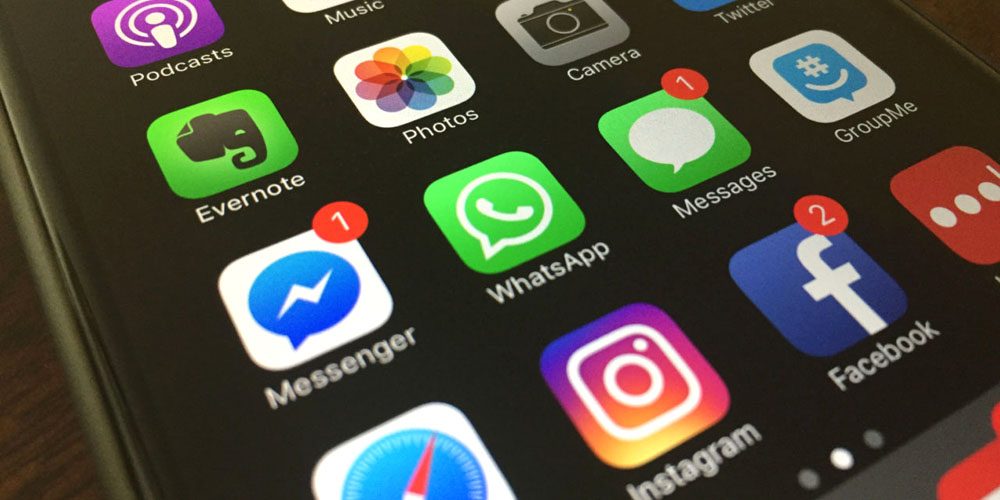|
It is often safe to block all those contacts with whom you are not safe. With WhatsApp, people are always connected online, eventually increasing the number of messages being sent to close aides.
Recently Facebook CEO Mark Zuckerberg noted that WhatsApp recently crossed 1.5 billion monthly active users with people sending more than 60 billion messages every day. In such a scenario, no one knows how many photos put up as display pictures on WhatsApp will get saved by others. All people, who have your contact number, can see your WhatsApp status and pictures unless they are blocked. All contacts on your phone may not be your friends. Cyber security expert Rakshit Tandon recently said that people often tend to save phone numbers of drivers, maids, watchmen and many other people who need not know what you are doing on WhatsApp. “It is often safe to block all those contacts with whom you are not safe. Especially, predators tend to observe children or women’s status and display pictures. Even if individuals are blocked on WhatsApp, they can always be contacted via phone or messages which are much safer,” he said. Experts urge users to enable two-factor authentication, especially since the number of mobile robbery cases are high. Don’t be reactive in your security, always be proactive. While a Facebook account or an Instagram account can be recovered in three minutes, it takes up to 72 hours to recover a WhatsApp account. In such a scenario, enabling two-factor authentication becomes important. According to WhatsApp, “When you have two-step verification enabled, any attempt to verify your phone number on WhatsApp, must be accompanied by the six-digit PIN that you created using this feature. Upon enabling this feature, you can also optionally enter your e-mail address. If you receive an e-mail to disable two-step verification but did not request this, do not click on the link. Someone could be attempting to verify your phone number on WhatsApp.” WhatsApp is also testing a feature where one can respond privately to a message received in a group chat. Facebook-owned WhatsApp is constantly bringing changes to its instant messaging app every few months, to keep users interested. The new feature that is being currently talked about is the ‘Dismiss as Admin’ which aims at facilitating one group administrator to remove another group administrator, while retaining the person in the group. This follows the other ‘Instagram Stories’ feature introduced some time back.
The change now being brought about is significant because till now, if there is a group admin and his or her status as the group admin had to be changed/done away with, the person’s number had to be removed from the group once and then re-introduced as an ordinary member of the group. This now stands altered to allow for this change without the person having to be removed from the group. This might sound a minor issue to many, but there have been many genuine cases where people had desired this change and Facebook has listened to them. Also, in the current settings, only the group administrator or Admin had the rights to add numbers to or delete them from the chat groups. This information has been disclosed in a Twitter message which goes on to say the new feature is right now under beta testing for Android and for iOS users as well. There is yet another change on WhatsApp that is on the cards and is also under testing. In this, one can send a private response to a message received within a chat group. This is not feasible in WhatsApp as available to users now. If you wish to reply to one particular person you had to get out of the group and reply on the individual’s window. Meanwhile, Facebook has denied that the chat groups can prove to be vulnerable if there is any hacking attack and the hacker can access the other group members’ devices also once the groups is penetrated. Facebook claims there is no way any new member can be added to a chat group secretly. The notification of a new number getting added is always sent. The company has now rolled out some new features on the beta version which will soon make their way to the stable version of the app. Facebook-owned WhatsApp keeps updating its mobile app with new features regularly. The company has now rolled out some new features on the beta version which will soon make their way to the stable version of the app.
The new features are as follows: Picture in Picture (PiP) mode The PiP feature enables users to multitask while taking a video call. The app now has a new icon that will prompt when a user is taking a video call. After selecting the icon, a picture in picture mode will start in a new window. Users can also resize the video window. Private replies in groups This feature will allow a user to reply privately to a group message. Now, a person in a group will get an option to message a particular member which other members can’t see. This feature was spotted in the WhatsApp Web version. New invite via link shortcut The invite via link feature is already available for the iOS app but will now make its way to the Android platform. It enables group admins to send a link to other users so they can join the group directly. Tap to unblock user The new build will provide an option wherein users can unblock anyone by just tapping and holding any contact and send him/her a message. Shake to report This is an interesting feature that allows users to report problems just by shaking the device which opens the Contact Us section of the app. The feature is available in the WhatsApp beta version number 2.17.437. WhatsApp is testing a new 'Restricted Groups' feature which will give the group administrator more powers. WhatsApp is testing a new ‘Restricted Groups’ feature which will give the group administrator more powers. According to a report from WABetaInfo, the messaging platform has submitted the “Restricted Groups” setting via Google Play Beta programme in the version 2.17.430.
Essentially, the new feature promises to give the administrator more power in a group chat. The report said that the administrator is free to restrict a member from sending text messages, photographs, GIFs, or voice messages. Once restricted, you can use the ‘Message Admin’ button to send a message to the group. You will be able to send message to the administrator of the group, who will ultimately decide whether it will be seen by other members of the group – or rejected completely. The Restricted group feature can be enabled by anyone with an administrator authority within the group chat. The settings can be changed every 72 hours, meaning group members can be silenced for a few hours at a time. WABetaInfo, which tracks upcoming WhatsApp features wrote: “WhatsApp will prevent the group creator to be deleted from the group by other administrators. This will help the group creator to have the full control of the group.· The administrators will be able to choose if other participants can modify the subject of the group, its icon and its description.” The feature is currently supported by Android and iOS beta, but WhatsApp has disabled it on its servers. At the moment, WhatsApp group administrator has the authority to add new members to the group. Members are free to post anything in the group. |
Categories
All
|




 RSS Feed
RSS Feed
